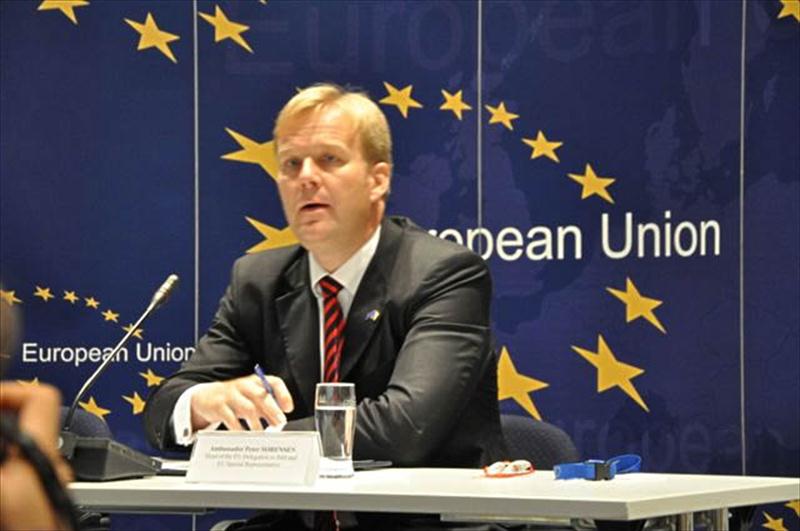Requests for asylum must be dealt with quickly and fairly
Procedures dealing with asylum requests must be fast, fair and effective, Maria Farrar-Hockley, Head of the Operations Section for Justice and Home Affairs and Public Administration Reform at the EU Delegation said in Sarajevo on Wednesday. Farrar-Hockley was addressing judges and other officials taking part in the first regional workshop on asylum and refugee law.
The two-day workshop on “Securing international protection by judges” began on Wednesday and was organized under the Technical Assistance Information Exchange Instrument (TAIEX) of the European Commission in cooperation with the Bosnia and Herzegovina (BiH) Ministry of Justice and UNHCR. Judges and representatives of relevant institutions from Bosnia and Herzegovina, Slovenia, Croatia, Serbia, the Former Yugoslav Republic of Macedonia and Montenegro attended the workshop, which was designed to improve court practices and procedures in cases of asylum and refugee law, by establishing regional cooperation among members of the judiciary.
Noting that asylum and refugee issues are important to countries in the region and also to EU member states, Farrar-Hockley pointed out that member states are currently establishing a common European asylum system which will reduce differences in procedures within the EU and which will offer greater protection to asylum seekers.
She reminded participants that EU Home Affairs Commissioner Cecilia Malmstrom’s recently stressed that asylum seekers should always be received with dignity and that they should be given the opportunity to explain their claim and have their protection needs assessed according to clear and objective criteria.
“I hope that you will, during this conference, exchange experiences and find the best solutions for the Western Balkans and later the EU,” she said, adding that all of the participants to the conference are members or aspiring members of the EU
Deputy BiH Justice Minister Srđan Arnaut said that all decisions regarding asylum applications or illegal residence in Bosnia and Herzegovina are dealt with as a matter of urgent procedure, and he stressed that “there should be no bottlenecks, either in the bureaucracy or in the courts.”
Arnaut noted that the workshop was oriented towards resolving issues related to domestic court procedures. However, he said a new problem has arisen, where citizens from some countries in the region have tried to take advantage of visa-free travel to the EU in order to seek asylum when they get there. He said there is evidence of organized trafficking, with individuals given advice on how to seek asylum. Arnaut suggested that participants discuss ways of tackling this problem.
Maureen Master of UNHCR in Bosnia and Herzegovina said that asylum laws in the region generally reflect obligations which the countries have under the 1951 Convention on the Status of Refugees, but she added that more can be done.
“We can always move forward and improve the existing system, to align it additionally with international and EU commitments,” she said, noting that the EU integration process already requires countries to ensure that their legislation complies with international obligations and EU law, and she expressed the hope that the workshop would support this process.
Strengthening the network of judges
The work of the International Association of Refugee Law Judges (IARLJ) was presented at the workshop, as were the activities of the Consultative Council of European Judges of the Council of Europe. Regional Administrative Courts’ competences in refugee law were also discussed.
The main thrust of discussion was to familiarize judges with current trends in practical and theoretical asylum/ refugee law and to present the main elements of the asylum acquis. The workshop also covered European Court of Justice jurisprudence and the interface of refugee law with European Human Rights Law, including European Court of Human Rights jurisprudence. An additional objective was to strengthen networks among judges dealing with asylum law, with the help of the IARLJ.




